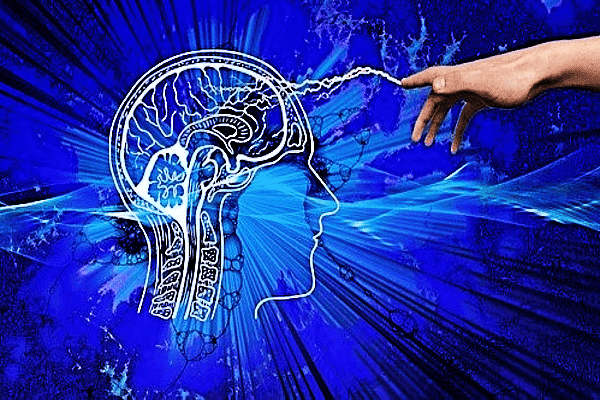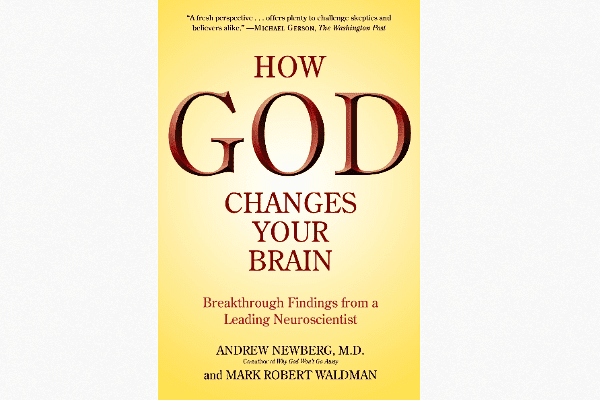 |
| Book Reviews and Summary: How God Changes Your Brain |
Book Reviews and Summary: How God Changes Your Brain. Recent research in neuroscience shows that consciousness originates in the brain or that the mind, reason and ultimately the soul actually originate from material objects, namely nerves in the brain.
Exactly how this awareness arises is not known for certain, but it is known that damage to certain parts of the brain and a deficiency or excess of certain hormones or substances can cause significant changes in personality, memory, language skills, emotions or even deep religious feelings. In addition, each part of the brain has its own function and role.
Like other parts of the body, the human brain is the result of millions of years of evolution, so in addition to having the ability to think rationally which comes from the later developing part of the brain (the frontal cortex, which is at the topmost layer), the front of the head also retains the primitive characteristics of other living things that have existed since the time of reptiles, found in the amygdala or limbic system.
This part is located in the lowest layer of the brain, and regulates emotions such as fear, anger, aggressiveness and the like, which are used for survival purposes. While the layer above or in the middle is the thalamus, which bridges the limbic system (emotions) with the frontal cortex (Mind).
The frontal cortex itself consists of three parts, namely the frontal lobe (FL), parietal-frontal circuit (PFC) and occipital-parietal circuit (CPC). In relation to God, FL creates and unifies all ideas about God, including logic for judging religious and spiritual beliefs, PFC forms the relationship between a person and God, and CPC makes God an object that exists in the world.
The thalamus gives emotional meaning to the concept of God so that it feels real, while increased amygdala or limbic activity makes God something scary.
In contrast, the anterior cingulate allows a person to feel God as something loving, because it suppresses the activity of the amygdala.
Book Reviews and Summary: How God Changes Your Brain, You Can Read
Based on the above knowledge, the authors, namely Newberg and Waldman conducted a study to see how prayer and meditation affect the nerves in the brain and subsequently on behavior.
 |
| Book Reviews and Summary: How God Changes Your Brain |
Can prayer and meditation change the neural function of the brain and affect the emotions and health of the performer? Which part of the brain is affected by prayer and meditation?
Is the brain's ability to understand religiosity evidence that a transcendent world exists? On the other hand, is religiosity or skepticism also caused by a different nervous system of the brain?
In this case, prayer is part of meditation, and the God that Newberg refers to is very broad, not the God referred to in the Abrahamic Religion which has a number of clear attributes, but everything transcendent. While meditation includes yoga.
From research, prayer or meditation will reduce the activity of the parietal lobe, which is the part of the cortex associated with the formation of a sense of self. When this happens, one feels one with the object of contemplation - for example God, whereas for Buddhist monks it is pure consciousness - so that the boundary between self and the universe or God is felt to disappear, or oneness with God or the universe occurs.
According to the author of the book, these spiritual experiences change one's view of the world, and have appeared throughout human history, but the ability of language to accurately describe these experiences has given rise to various ideas and theologies.
Based on research on Buddhists and Bhikkhuni who have been doing their activities for more than 15 years, FL activity increases while limbic activity decreases, which creates a sense of peace and serenity.
In addition, the thalamus is not symmetrical. This section plays a role in identifying the real and the unreal, and giving emotional meaning to the thoughts that arise in FL.
That is, the stronger one's focus on God or something, the more God or something is perceived as real, so reality will appear different, and asymmetry becomes a normal form of consciousness. Asymmetry is also found in people with epilepsy and schizophrenia.
Increased FL activity can be done by means of regular meditation at least twenty minutes per day. This activity can be in the form of prayer or meditation in general without being based on a particular religion.
Meditation activities that are carried out continuously will change the brain's nerves by creating new neural circuits that increase compassion, so that a person will feel focused, calm, empathetic and a loving God, because brain nerves are not fixed, but can change, which is called neuronal plasticity. .
This occurs through a part of the brain called the anterior cingulate, the part that bridges the new and old brain, namely the frontal lobe and the amygdala. This section connects emotions (in the amygdala) with cognitive abilities (in the frontal lobe), and brings together all the activities in the various parts of the brain that allow consciousness to arise.
There is also the Von Economo nerve, which is found only in humans, primates, and whales, and is associated with the development of social awareness abilities and directing positive emotions.
The function of the anterior cingulate is as a balance between emotion and reason / logic, which is represented by the limbic system and frontal lobe.
When emotional levels are too high, blood rushes to the lymphatic system, causing feelings of anger or fear, and reduced empathy. On the other hand, frontal lobe activity stimulates the anterior cingulate, which reduces amygdala activity, allowing the mind to cope with anger and fear.
Since the brain is the most primitive and for survival, the amygdala is more difficult to change than the frontal lobe.
According to Newberg, human spiritual development is correlated with neural evolution of the brain.
A punishing and authoritarian God is linked to the amygdala, which is based on fear and emotion. As the frontal lobe develops, which uses more reason and logic, God becomes more gracious and loving.
That is why God's authoritarian and emotion-based teachings will lead to a lack of empathy, aggressiveness and intolerance, because it activates the amygdala more.
Factors Affecting Spirituality Level
A person's spirituality can be influenced by neurotransmitters, namely dopamine, gamma-aminobutyric acid (GABA), and medicinal plants (psychedelic drug), such as psilocybin which is a type of mushroom.
Certain yoga practices can increase dopamine by up to 65% and encourage positive thoughts, feelings of security in the world, and pleasurable experiences.
Meanwhile, too little dopamine can cause a person to be skeptical or distrustful. While the increase in GABA 27% can reduce depression and anxiety.
Fundamentalism
Fundamentalism has a bad influence on the nerves of the brain, because it is usually filled with anger towards other people who have different beliefs.
So the problem with fundamentalism is the anger it inflicts on its adherents. Expressing or listening to anger can interfere with normal nerve function, because it stimulates the amygdala in a way that resembles recalling a traumatic memory.
In addition, negative speech has a stronger impact, because it is remembered more in the brain, and negative memories are the most difficult to erase. This is inseparable from the nature of the brain that is designed to follow (mimic) the emotional expressions of others.
Based on this, can someone who has become a fanatic change his mind? According to the author of the book, from a neurological point of view, the more we practice/live an ideology, the more the brain responds to that belief as if it were real.
Therefore the way to reduce it is through education and encounters with other ideas, because the more people hear, read and think about different ideas, the more they can take root.
Closing
From the research in this book, it can be concluded that meditation, prayer and understanding religion based on reason can bring positive things because they provide peace of mind, optimism, empathy and tolerance.
 |
| Book Reviews and Summary: How God Changes Your Brain |
On the other hand, a fearful and angry religious understanding activates primitive nerves based on emotion, giving rise to aggressiveness and intolerance.
The knowledge in this book can explain why meditation is generally beneficial for mental health and people feel comfortable embracing a particular religion or belief and why dogmatic, rigid, and introverted religions encourage negative attitudes that lead to anger and violence.




0 comments